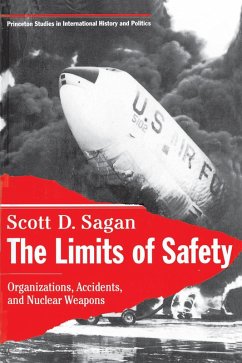Environmental tragedies such as Chernobyl and the Exxon Valdez remind us that catastrophic accidents are always possible in a world full of hazardous technologies. Yet, the apparently excellent safety record with nuclear weapons has led scholars, policy-makers, and the public alike to believe that nuclear arsenals can serve as a secure deterrent for the foreseeable future. In this provocative book, Scott Sagan challenges such optimism. Sagan's research into formerly classified archives penetrates the veil of safety that has surrounded U.S. nuclear weapons and reveals a hidden history of frightening "close calls" to disaster.
Hinweis: Dieser Artikel kann nur an eine deutsche Lieferadresse ausgeliefert werden.
Dieser Download kann aus rechtlichen Gründen nur mit Rechnungsadresse in A, D ausgeliefert werden.
Hinweis: Dieser Artikel kann nur an eine deutsche Lieferadresse ausgeliefert werden.









